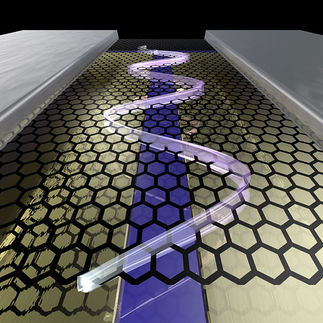Speed up development of next-gen electronics
Advertisement
electronics are getting smaller all the time, but there's a limit to how tiny they can get with today's materials. Researchers now say, however, that they have developed a way to shrink capacitors — key components that store energy — even further, which could accelerate the development of more compact, high-performance next-gen devices. The study appears in the journal ACS Nano.
Takayoshi Sasaki and colleagues point out that many recent improvements have already downsized capacitors significantly. But current technology has almost reached its limit in terms of materials and processing, which in turn limits the performance that manufacturers can achieve. In response, researchers have gone to the nanoscale, but "nanocapacitors" are not easy to make.
They require harsh, difficult-to-use methods and even then, they may not work that well. So Sasaki's team developed an easier approach, and they use it to make high-performance "ultrathin" capacitors.
The researchers found that they could use gentle techniques and mild conditions to create a sandwich consisting of layers of two different types of oxide nanosheets to produce an ultrathin capacitor. In addition, the new capacitor has a capacitance density about 2,000 times higher than that of commercially available products. They say that, in the future, the ultrathin capacitors could be used in printed circuit boards and in memory storage devices, for example.
Most read news
Other news from the department science

Get the chemical industry in your inbox
By submitting this form you agree that LUMITOS AG will send you the newsletter(s) selected above by email. Your data will not be passed on to third parties. Your data will be stored and processed in accordance with our data protection regulations. LUMITOS may contact you by email for the purpose of advertising or market and opinion surveys. You can revoke your consent at any time without giving reasons to LUMITOS AG, Ernst-Augustin-Str. 2, 12489 Berlin, Germany or by e-mail at revoke@lumitos.com with effect for the future. In addition, each email contains a link to unsubscribe from the corresponding newsletter.































































